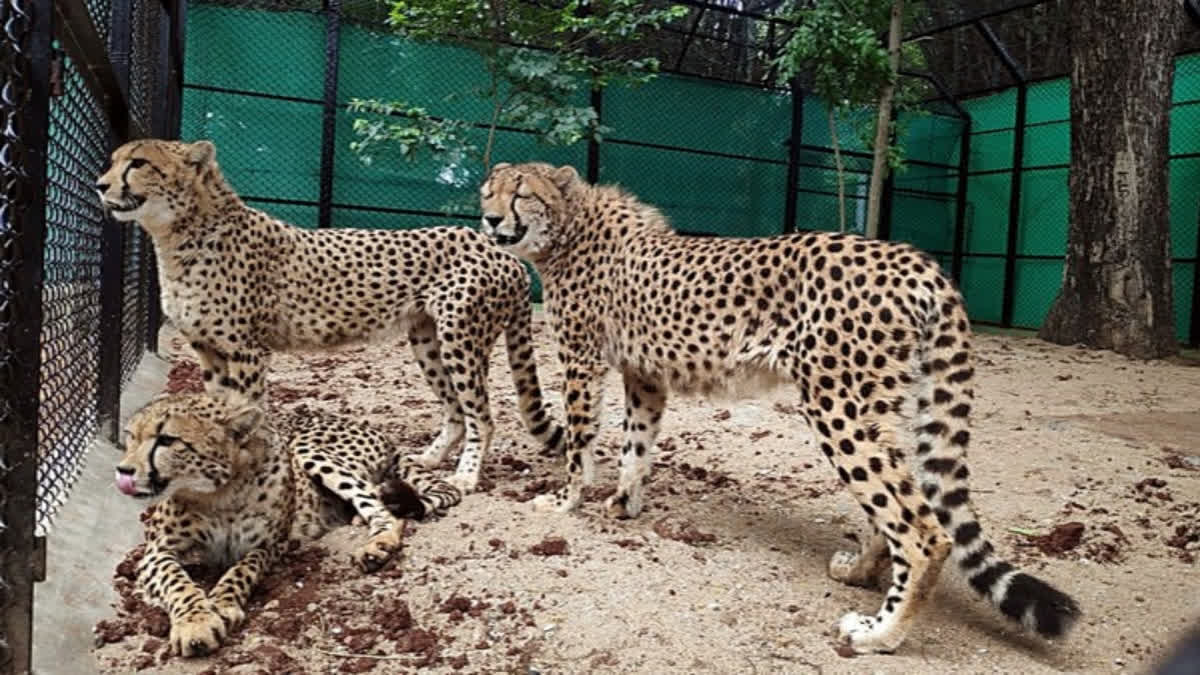New Delhi: The Supreme Court Monday said it sees no reason to disbelieve the Centre’s statement that it is making its "best efforts" to prevent the death of cheetahs and stressed that the area should be left to experts in the field.
A bench comprising Justices BR Gavai, PS Narasimha and Prashant Kumar Mishra noted that the government has placed on record an affidavit contending that out of 20 cheetahs relocated, 14 are still surviving and 6 have died and the government has contended that wrong reports have been published by media regarding cheetah deaths.
Additional solicitor general Aishwarya Bhati, representing the Centre, contended before the court that three more additional deaths shown are of the cubs of the translocated cheetahs. The Centre said there is a committee consisting of 11 experts already constituted apart from an international panel of cheetah experts. The top court observed that the Centre has made a statement that all international experts on the cheetah panel are being consulted to prevent the deaths of cheetahs.
The top court, in its order, said, “We see no reason to disbelieve the statement made on affidavit…in case the area is an area which is best left to the experts in the field as much as we do not possess any expertise in that field. As to whether a particular person needs to be nominated on the committee…it is a matter which is exclusively in the domain of the Union…”
Also read: Cheetahs dying because they develop thick coats in anticipation of African winter in India: Experts
The top court was hearing an application pertaining to the deaths of cheetahs in Kuno National Park. The application claimed that the Union government was not taking effective steps to prevent the death of cheetahs, and though an international panel of cheetah experts has been constituted, this panel has not been consulted.
Cheetahs were brought to the park as part of a reintroduction project after the species was declared extinct from the country in 1952. During the hearing, Bhati stressed that the government is consulting experts and responding to new situations and taking all steps and even 50% (survival rate) would work.
Bhati said efforts were targeted for the cheetahs to get acclimatized to conditions in India and the project is progressing well. She said the government will address data on the factually incorrect media reports and explained that the spike in death numbers was due to the inclusion of deaths of cubs born to one of the cheetahs.
During the hearing in the matter, the top court asked the Centre to address the “public concern” about the deaths of cheetahs. Referring to deaths to be unfortunate, Bhati said they were expected and emphasized that an 11-member expert committee had been formed by the Centre to monitor the health of the surviving cheetahs.
The bench queried about the reasons for the deaths. Bhat said it was the hot summer and the cheetahs had grown “winter coats” as the season was winter in the African continent, and winter coats had led to infection. The bench said the authorities would have anticipated it and queried on steps taken when cheetahs were brought here. Bhati stressed that they are closely monitoring the surviving animals.
On July 20, the Supreme Court said the death of 40 per cent of cheetahs translocated from South Africa and Namibia to the Kuno National Park (KNP) in less than one year doesn't present a "good picture" of Project Cheetah, and suggested the central government to examine if it is possible to shift the animals to different sanctuaries.



